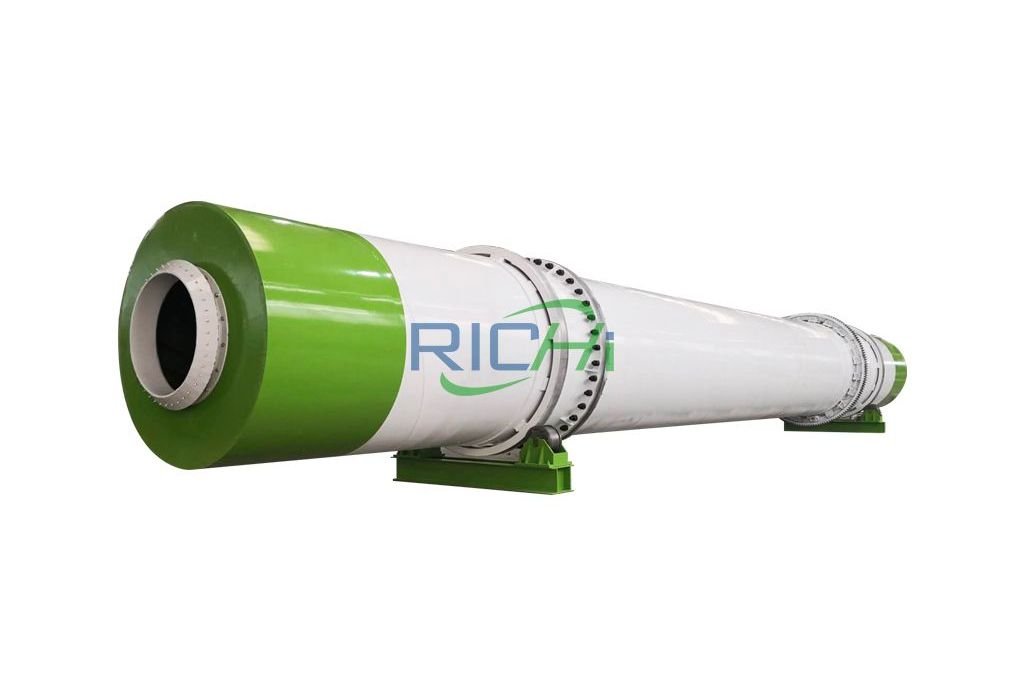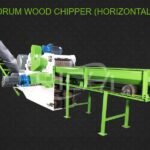Wood chip dryers have long been a staple in the wood processing and biomass industries, primarily used for drying wood chips and sawdust. However, the versatility and efficiency of these dryers have led many to question whether they can be effectively used for drying other types of materials. This article explores the potential of wood chip dryers in handling various materials beyond their traditional applications.
The Versatility of Wood Chip Dryers
Wood chip dryers, particularly rotary drum dryers, are known for their robust design and ability to handle materials with varying properties. These characteristics make them potentially suitable for a wide range of drying applications. The key features that contribute to their versatility include:
- Adjustable Retention Time: The ability to control the material’s time inside the dryer allows for adaptation to different drying requirements.
- Temperature Control: Precise temperature regulation enables the drying of heat-sensitive materials.
- Customizable Internal Design: The drum’s internal flights and lifters can be modified to suit different material properties.
- Scalability: Wood chip dryers are available in various sizes, making them adaptable to different production scales.
Other Materials Suitable for Wood Chip Dryers
- Agricultural Products
Wood chip dryers have shown promise in drying various agricultural products:
- Grains: Corn, wheat, and rice can be effectively dried in these systems.
- Biomass: Agricultural residues like straw, corn stalks, and sugarcane bagasse are suitable candidates.
- Animal Feed: These dryers can process animal feed ingredients, ensuring proper moisture content for storage and use. (Related post:Straw Dryer )
- Industrial By-products
Many industrial processes generate by-products that require drying:
- Paper Mill Sludge: Wood chip dryers can handle the high moisture content of paper mill waste.
- Mining Concentrates: Certain mineral concentrates can be dried using adapted wood chip dryers.
- Chemical Products: Some chemical intermediates and end products can be processed in these dryers.
- Food Industry Materials
With proper modifications and adherence to food safety standards, wood chip dryers can be used for:
- Dried Fruits and Vegetables: Large-scale production of dried food products.
- Coffee Beans: Post-harvest drying of coffee beans.
- Nuts: Drying various types of nuts to optimal moisture levels.
- Environmental and Waste Management
Wood chip dryers can play a role in environmental applications:
- Biosolids: Drying sewage sludge and other biosolids for further processing or disposal.
- Contaminated Soils: Drying soils as part of remediation processes.
- Recycling Materials: Drying certain recyclable materials before further processing.
Advantages of Using Wood Chip Dryers for Other Materials
- Energy Efficiency
Wood chip dryers, especially those with heat recovery systems, can be highly energy-efficient. This efficiency translates well to drying other materials, potentially reducing operational costs. - High Throughput
The ability to handle large volumes continuously makes these dryers suitable for industrial-scale operations across various sectors. - Uniform Drying
The tumbling action in rotary drum dryers ensures even drying, which is crucial for many materials beyond wood chips. - Flexibility
The adaptability of wood chip dryers to different materials with minimal modifications makes them a versatile choice for multi-product facilities.
Considerations and Limitations
While wood chip dryers show potential for drying various materials, several factors must be considered:
- Material Properties
The physical and chemical properties of the material being dried are crucial. Factors like particle size, density, and heat sensitivity must be evaluated to ensure compatibility with the dryer. - Contamination Risks
When switching between different materials, thorough cleaning is essential to prevent cross-contamination, especially in food and pharmaceutical applications. - Regulatory Compliance
Certain industries, particularly food and pharmaceuticals, have strict regulations regarding drying equipment. Modifications may be necessary to meet these standards. - Wear and Tear
Different materials can cause varying levels of wear on the dryer components. This may necessitate more frequent maintenance or the use of specialized materials in dryer construction. - Emission Control
Drying certain materials may produce different emissions compared to wood chips. Existing filtration and emission control systems may need upgrades.
Case Studies
- Agricultural Waste in India
A study in India demonstrated the successful use of a modified wood chip dryer for drying agricultural waste like rice husks and coconut shells. The dryer’s efficiency in handling these materials was comparable to its performance with wood chips. - Paper Mill Sludge in Canada
A Canadian paper mill adapted a wood chip dryer to process paper mill sludge, significantly reducing the volume of waste and creating a product usable as a fuel source. - Coffee Bean Drying in Brazil
A large coffee producer in Brazil repurposed wood chip dryers for coffee bean drying, achieving consistent quality and reducing drying time compared to traditional methods.
Conclusion
Wood chip dryers have demonstrated significant potential for drying materials beyond their traditional use in the wood processing industry. Their versatility, energy efficiency, and adaptability make them suitable for a wide range of applications across various sectors, including agriculture, industry, food processing, and waste management.
However, the successful adaptation of wood chip dryers for other materials requires careful consideration of the material properties, regulatory requirements, and potential modifications needed. Each application should be evaluated on a case-by-case basis, considering factors such as energy efficiency, product quality, and operational costs.
As industries continue to seek more efficient and versatile drying solutions, wood chip dryers present an interesting option. Their ability to handle diverse materials with minimal modifications makes them an attractive choice for businesses looking to expand their drying capabilities or improve existing processes.
The future may see further innovations in wood chip dryer design, specifically tailored to enhance their performance with non-wood materials. This could include advancements in material handling systems, improved temperature control mechanisms, and more sophisticated cleaning systems to facilitate easy switching between different materials.
In conclusion, while wood chip dryers were originally designed for a specific purpose, their potential extends far beyond wood processing. With proper adaptation and careful consideration of material properties and regulatory requirements, these versatile machines can offer efficient drying solutions across a broad spectrum of industries and applications.
For details please contact: wood pellet maker
WhatsApp:86 138 3838 9622
Email:enquiry@richipelletmachine.com


